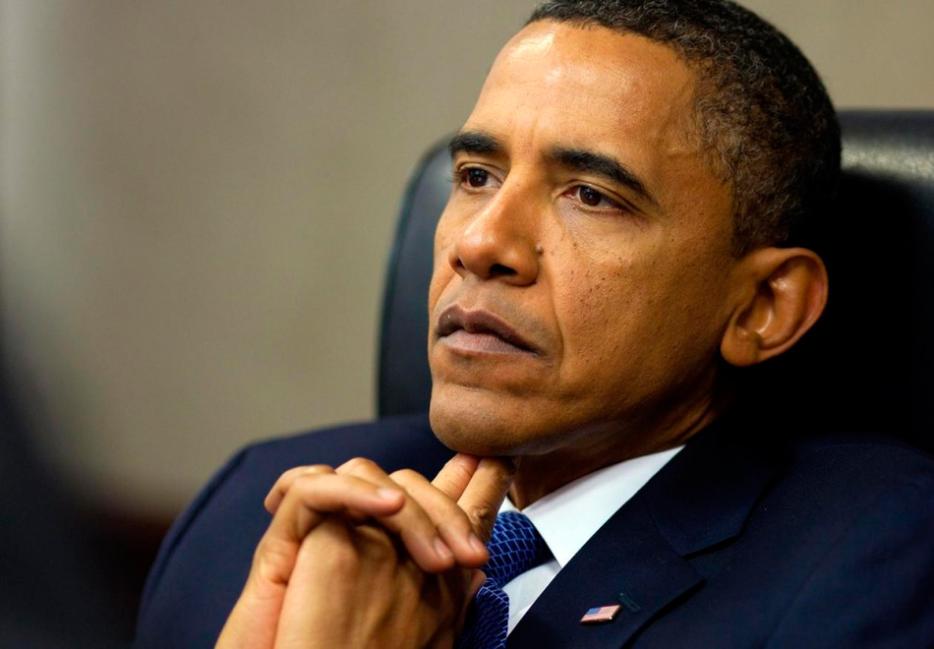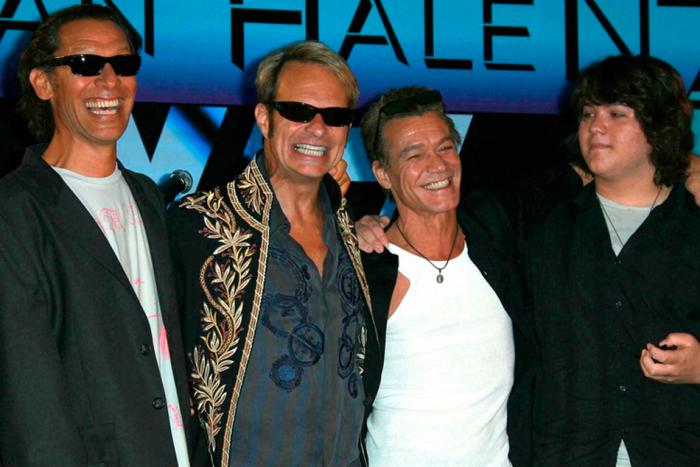The United States has been scared for a long time. Not timid, but terrified. There are books to be written on American fear—Gore Vidal wrote a few of them—but to keep it brief: From the antebellum South to McCarthy to Obama, the States has done foolish, stupid, and unforgivable things out of sheer apoplectic terror of race rebellion, communists, socialists and terrorists. So much so, in fact, that their century of aggression begins to look like overcompensation, like Sgt. Benson in Partners or Arnie in Christine.
At least as far back as Vandenburg and Truman, people have realized that fear can be power’s best friend. It became most obvious, at least to me, under George W. Bush.
It doesn’t seem that Truman was especially scared, and though Nixon probably was, it wasn’t of the things he encouraged the population to fear. Bush is a cypher, but it looks like the secret behind the otherwise inexplicably horrible things that are happening under Obama—Guantanamo, the six indictments under the Espionage Act, the drones, the kill lists, the Associated Press spying, the atmosphere that allowed the IRS’s targeting of conservative groups—may be the direct result of Barack Hussein Obama himself being personally panic-stricken.
The Commander-in-Fear idea comes from the opening pages of Bob Woodward’s book, Obama’s Wars. After a detailed summary of the president-elect’s first security briefing, which was so secret it took place in a tiny, windowless room in the centre of a building so not even the highest of tech snooping devices could overhear—give me a better image of paranoid power—Woodward quotes Obama, through a source, saying, “I’m inheriting a world that could blow up any minute in half a dozen ways.”
Usually, I wouldn’t set too much store by what Bob Woodward reports. He’s a fan of narrative, and has a tendency to impose it on otherwise messy timelines. I tend to figure he probably gets the big picture right, but I don’t take any particular detail too seriously.
But James C. Goodale thinks Woodward’s nailed it with this ObamaFear theory, and that’s made me re-consider.
Goodale was chief counsel for the New York Times during what many consider its finest hour. It was he who put together the ultimately successful argument against the Nixon administration, that communicating with the press is different than communicating with the enemy, an argument the U.S. Supreme Court agreed with when they refused to find anything wrong with the publication of the Pentagon Papers.
He’s still practicing in New York City, and has just published a book, Fighting for the Press, in which he talks about the Pentagon Papers case, and relates it, in his final chapters, to the extraordinary things that have been happening under Obama. In fact, he says, “I wrote the book as a clarion call to see if I could get some criticism for what he’s doing.”
He’s on a train when I reach him on Wednesday and he says that shocking thing he’s said a few times in the past week. We’re talking about the Pentagon Papers case, the one that hinged on the line between passing information to the press and passing it to the enemy, the one that decided the people’s right to know what their government was doing superseded any harm that might stem from an enemy getting hold of the same information.
“I don’t think he is drawing the line,” Goodale says of Obama. “That’s where he’s similar to Nixon, and maybe even worse than Nixon.”
Maybe even worse than Nixon. In terms of relationship with the press and their constitution’s first amendment, that’s like calling a confidence man maybe even worse than Madoff or a mayor maybe even worse than Rob Ford.
He’s referring to the fact that Obama has tripled the number of indictments under the almost century-old Espionage Act during his five years, but he says it’s like he predicted this week’s Associated Press revelation. Same issue, same fear, same unjustifiable behaviour.
“I really think this is outrageous,” he says of the AP story. “Why didn’t they call AP and discuss it and talk it through so AP would be in a position to complain before the government got its sources? I believe that [Attorney General Eric] Holder had to approve the subpoena; under the Justice guidelines, he has to.
“I find it a little surprising that he would approve such a broad gauge thing. He’s running around the direct way of getting information. He’s being tricky about it. Hiding behind a telephone company: The optics of it are very, very poor.”
I ask Goodale if there’s anything about the Internet that might have changed things since the 1970s, anything that might justify Obama’s more frantic approach to national security and freedom of the press in cases like Bradley “Jesus Wept” Manning’s. No more than the photocopier changed things for Ellsberg, he says.
So, fear it is then. I’m sure Obama knows things the rest of his countrymen don’t, but I’m equally sure that it doesn’t form a reasonable basis from which to govern. As Goodale points out, Nixon also told his electorate that he knew things they didn’t, and that’s why he was doing the things he was doing. “If you pull out what was claimed at the time and look at it in the light of history, all those claims that ‘We know more than you,’ do turn out to be so much hot air complete nonsense,” he says.
It’s alarming to think that both domestic and foreign policy in the United States, a country that has so much influence on and power over so much of the rest of the world and the people who live in it, is being dictated by a trembling elite, scared of bombs, jittery about airplanes, anxious about losing their grip on power, who make a bogeyman of Mohammed and are petrified of people looking over their shoulders and reading their diary. But it looks like that’s exactly what’s going on.






